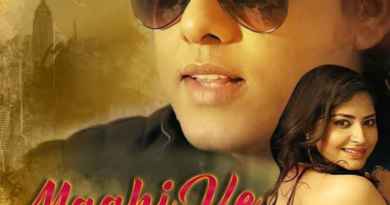Kolkata Centre for Creativity Hosts Dance: Formality, Fluidity, Commodity
News Correspondent, abptakmaa, Kolkata, 27th Apr 2020 : Dance has been the part of livelihood since the formation and development of human history, as it includes rhythm, movement, sound and silence. The history of dance in India has gone through some major shifts in terms of style, class, gender and spectator. The theme, Dance: Fluidity, Formality, Commodity is going to address certain issues of the shifts that dance in India went through and has been going through. Come 29th April 2020, Kolkata Centre for Creativity, the multi-dimensional arts space will be hosting DANCE: FORMALITY, FLUIDITY, COMMODITY on KCC’s digital platform that will unfurl the aesthetics of dancing.

The eclectic session will highlight the operation of hegemony in mainstream society, within the specific context of classical dance connects nationalism, cultural policy and the female body, as well as the social gaze. The same politics shifts the gaze as it comes to the practice of folk or popular forms trivialising the disciplines and the practitioners associated. The changing notion of audience, the professional women performer in public — these ideas become the key points, which need to be located again and again to understand the ever shifting ground of aesthetic context and the role that tradition plays in these emergences.
Ms Richa Agarwal, Chairperson, Kolkata Centre For Creativity said, ‘Dance is one of the most ancient art forms that include rhythm, movement, sound and silence, all together and makes a beautiful harmony out of it. However, the history of dance forms in India have gone through some major changes and transformations in terms of style, class, gender and spectator with the advent of time and technology. On this World Dance Day, we are celebrating dance as a creative art form and would address certain issues of the shifts that dance in India went through and is going through gradually. We feel this would be an insightful and enriching learning experience for the participants and enthusiasts.’
Moderated by Kathakali Jana, as she will be in conversation with Urmimala Sarkar & Aishika Chakraborty, this session aims to unpack, deconstruct and question the ‘unquestionable’ norms by following historical trajectories, evolving formations and the emergent changes in Indian dance, across the realms of classical, folk, contemporary and popular, that are coming about through politically inflected interactions between tradition, nationalism and today’s globalised market economy.
Date & Time: 29th April 2020, 5 pm to 6 pm
About the panel:
Urmimala Sarkar Munsi – faculty at the School of Arts and Aesthetics, JNU, is an anthropologist and a dancer-choreographer trained at the Uday Shankar India Culture Centre. Her current research interest include – dance, gender and embodied vulnerabilities; dance within cultural policies and discourses of nationalism; politics of performance documentation.
Aishika Chakraborty is Professor and former Director of the School of Women’s Studies, Jadavpur University. A gender historian, her research interests range from widowhood in colonial Bengal to a gendered reading of modern-contemporary dance of India. Formerly a performer and choreographer Dancers’ Guild, Aishika now works on exotic dancing in India, entwining it with issues of sexual labour, migration and human trafficking. Two of her Bengali monographs Kolkatar Nach: Samkaleen Nagarnritya (Gangchil, 2018) and Kolkatar Cabaret : Bangali, Younata ebang Miss Shefali (Gangchil, 2020) trace the historical trajectory of modern and popular dance of Calcutta. She has co-edited The Moving Space: Women in Dance (with Urmimala Sarkar Munsi, 2017) and edited Ranjabati: A Dancer and Her World (2008).
Moderator: Kathakali
Jana – She is the administrative and events head at the
ITC Sangeet Research Academy. Besides her day job, she also works as a
freelance feature writer and dance reviewer for several print and online
publications.



